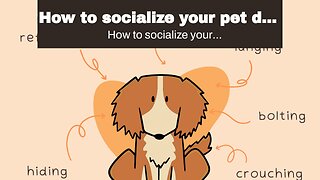Yes, dogs can pick up on their owners' emotions.
Yes, dogs can pick up on their owners' emotions.
A pile of recent studies shows how canines pick up chemical and physiological signals from people that allow our moods to become contagious.
Dog owners often feel that their dogs are good at picking up on their emotions. This is not a figment of their imagination. New studies show how behavioral and chemical signals from humans can affect dogs in ways that allow them not only to discriminate between their owners' fear, excitement, or anger, but also to "pick up" these feelings from their human companions.
Just as human children look to their parents for cues on how to react to people and the world around them, dogs often look to humans for similar cues. When their people project feelings of calm and trust, dogs tend to see their surroundings as safe and secure.
The emotional connection between humans and dogs is the essence of the relationship, says Clive Wynne, professor of psychology and director of the Canine Science Collaboratory at Arizona State University. Dogs are incredibly social beings, so they are easily infected by our warmth and joy. But the reverse is also true, which means that the owner's stress and anxiety can also become the dog's stress and anxiety.
This interspecies emotional contagion, as psychologists call it, has a psychological, physiological and behavioral basis. In recent years, several studies have shown that the transmission of emotions depends on the release of certain hormones (such as oxytocin), changes in body odor in humans, the firing of key neurons in dogs and their humans, and other physiological factors.
Recent research also shows that the extent to which people and their pups pick up on their owners' emotions depends on the length of the relationship. This is an especially notable phenomenon at the moment, as people and their canine companions continue to spend more time together during the pandemic.
There is a spectrum of emotional connection between people and their dogs, from the ability to detect and understand each other's feelings to sharing the same emotions.
Studies have shown that dogs can catch our yawns , experience an increase in cortisol levels when they hear a baby crying just as humans do, and respond to the emotional tone of our voices. While interacting with each other or even just looking into each other's eyes, research has found that people and their dogs experience the release of oxytocin, often called the love hormone or hug hormone although the hormone's effects are more complicated than that since it can foster trust and generosity in some situations and envy in others.
Dogs also have "affective empathy" - which is defined as the ability to understand another person's feelings - toward people who are important to them. Emotional contagion is a primitive form of affective empathy that reflects the ability to actually share these feelings.
The researchers examined how dogs reacted when their owner or a stranger in their home pretended to laugh or cry. The dog gave more attention to the person who appeared to be crying, both through eye contact and physical contact. And when the stranger cried, the dogs showed higher stress responses, explains study co-author Julia Meyers-Manor.
All empathy has some component of contagious emotions, explains Meyers-Manor. In some ways, recognizing another creature's emotion is more complex cognitively speaking, while feeling what another animal feels is simpler.
Sharing a home, a life, a family, and activities all contribute to the quality of the human-canine connection. Sharing each other's feelings "helps us understand each other better and facilitates the bond that develops and how it is maintained over time.
-
 0:16
0:16
kwoodruff
4 years ago $26.40 earnedJealous Dog Makes Sure He Also Gets Hug From Owner
24.1K2 -
 0:22
0:22
Funny Channel
5 years agoMe as a dog owner
8 -
 2:02
2:02
couple_of_mals
5 years ago $28.65 earnedService Dog Adorably Deals With Its Owner’s Anxiety Attack
738K5 -
 0:59
0:59
Melnotte
6 years ago $150.03 earnedBulldog Begs Owner For Attention
359K5 -
 0:24
0:24
Koyoteandbanner
5 years ago $96.58 earnedJealous Husky Refuses To Let Owner Pet Cat
24.8K -
 1:10
1:10
SWNS
1 year ago4 in 5 pet parents claim their dog’s wellness is as important as their child’s
30 -
 0:24
0:24
Asparseghian
4 years ago $7.10 earnedNeedy Dog Refuses To Stop Demanding Attention From Owner
7.51K1 -
 0:13
0:13
alexnecov
6 years agoThis Jealous Dog Refuses To Let His Owner Pet The Cat
4.46K -
 5:00
5:00
GuillermoChaves
1 year agoHow to socialize your pet dog with reactive behavior
33 -
 1:03
1:03
Dogacat
6 years ago2 wolves howling together at the moon, and the dog misses the owner.
49